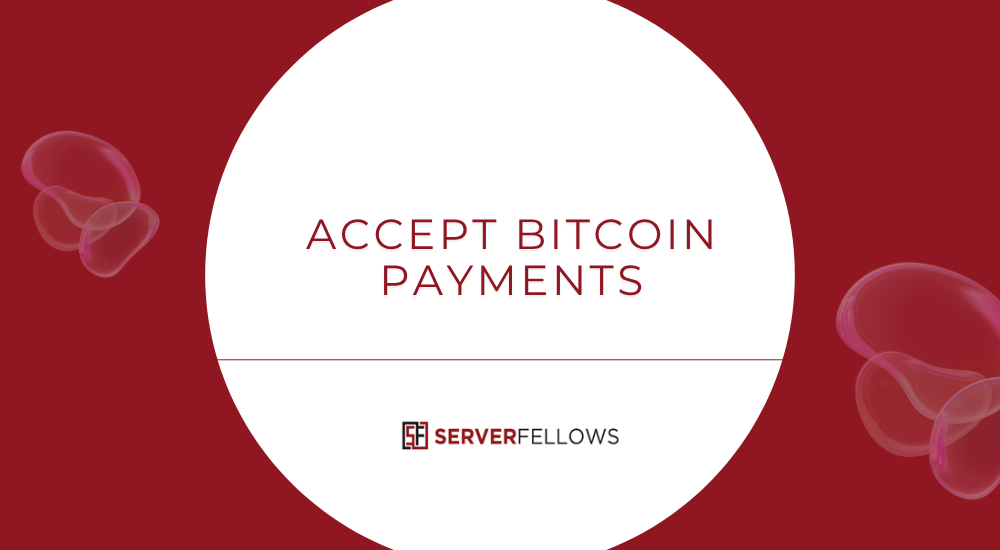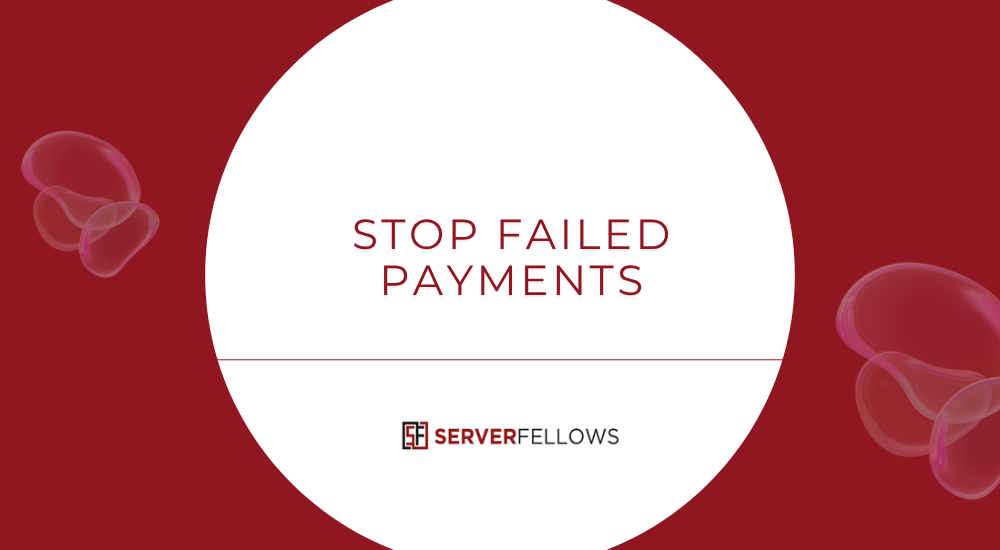
How to Accept Bitcoin Payments on Your Website: Complete 2025 Guide
Accepting Bitcoin payments on your website is no longer reserved for tech experts or blockchain enthusiasts. It’s becoming a mainstream option for businesses that want to expand globally, reduce transaction costs, and appeal to customers who value transparency and innovation.
In this in-depth guide, you’ll learn how to accept Bitcoin payments on your website—whether through Coinbase, BitPay, or a fully manual wallet setup. We’ll break down how each method works, compare their pros and cons, explain how to manage volatility, and show you practical steps to integrate Bitcoin checkout into your business smoothly.
Why Businesses Are Accepting Bitcoin
Bitcoin has transformed from a digital experiment into a legitimate payment solution used by brands, freelancers, and e-commerce stores worldwide. The rise of decentralized finance (DeFi) and customer demand for borderless transactions make Bitcoin an attractive alternative to traditional banking.
Here’s why more online businesses are integrating Bitcoin payments:
- Low Fees: Bitcoin payments bypass credit card intermediaries, saving up to 3–5% in processing costs.
- Instant Settlements: Cross-border transfers clear in minutes, not days.
- No Chargebacks: Transactions are irreversible, protecting merchants from fraudulent refunds.
- Wider Audience Reach: Accepting Bitcoin opens doors to millions of crypto users globally.
- Enhanced Brand Image: Businesses that accept digital currency signal modernity and trust in new technology.
Before you start, make sure your hosting infrastructure can handle secure payment gateways and SSL encryption. Platforms like Serverfellows.com provide optimized hosting for Bitcoin-enabled websites, ensuring reliability and safety from day one.
The Three Main Methods to Accept Bitcoin Payments
When planning how to accept Bitcoin payments on your website, you can choose from three practical methods depending on your technical ability and business model:
- Using Coinbase Commerce for easy setup and automatic conversions.
- Integrating BitPay for professional invoicing and e-commerce compatibility.
- Going direct-to-wallet for full control and zero fees.
Let’s explore each in detail.
1. Coinbase Commerce: Fast Setup With Auto-Conversion
Coinbase makes it simple for anyone to start accepting Bitcoin, even with no crypto experience. It combines ease of use with flexible settlement options, allowing you to hold Bitcoin or automatically convert a percentage into fiat currency.
Why Choose Coinbase Commerce
- Instant checkout button creation—no coding needed.
- Option to auto-convert Bitcoin to fiat for a 1% fee.
- Centralized dashboards for accounting and reporting.
- Secure custody and compliance handled by Coinbase.
- Support for multiple cryptocurrencies like BTC, ETH, and USDC.
How to Set It Up
- Create a Coinbase Commerce account.
- Generate a checkout button or hosted link for your products or invoices.
- Embed that link into your website’s checkout page or email invoices.
- Customize auto-conversion rules to reduce volatility risk.
- Set up daily or weekly settlements to your bank account.
For small businesses, this solution eliminates the need for running a blockchain node or managing private keys. Coinbase keeps your crypto secure while giving you full access to reports, making it easier to reconcile payments at tax time.
If you’re running a growing store, host your website on a secure, high-performance server like Serverfellows.com to ensure smooth API calls, fast load times, and continuous uptime for crypto transactions.
2. BitPay: Professional Crypto Checkout and API Power
BitPay has been a leader in crypto payment processing for years. It’s designed specifically for merchants who need professional-grade invoicing, integrations, and settlement options.
Key Features
- Accept Bitcoin, Ethereum, and stablecoins.
- Auto-settlement in fiat to avoid market swings.
- Easy integrations with Shopify, WooCommerce, and Magento.
- Refund and underpayment handling built in.
- Robust API and webhook support for developers.
BitPay acts as a bridge between your website and the blockchain network. It generates invoices, verifies payments, and confirms when transactions are finalized on-chain. You can choose whether to receive funds in Bitcoin or automatically convert them to your preferred currency for a small service fee (typically 1%).
Advantages for Businesses
- Streamlined checkout with familiar e-commerce workflows.
- Reduced manual effort through automation and dashboard tools.
- Multi-currency support for flexibility.
- Excellent documentation and API support for developers.
To integrate BitPay, install its plugin (for WordPress/WooCommerce, Magento, or Shopify) or use the REST API for a custom site. Once connected, you’ll receive instant notifications when payments clear, allowing orders to process without delay.
Stable hosting matters here—transaction confirmation times can vary, so having a reliable server ensures that API callbacks aren’t lost. Serverfellows.com offers SSL-secured hosting optimized for crypto-compatible sites, helping maintain the stability you need.
3. Direct-to-Wallet: Full Control and Zero Processing Fees
For developers and privacy-conscious businesses, accepting Bitcoin manually via your own wallet provides maximum freedom. This approach skips middlemen entirely—you manage everything from invoices to confirmations.
How It Works
You generate a new Bitcoin address for every order. The customer sends funds directly to that address, and once the transaction receives one or more blockchain confirmations, you fulfill the order.
Pros
- No third-party or custody risk.
- Zero processing or conversion fees.
- Direct ownership of funds.
- Enhanced privacy for both merchant and buyer.
Cons
- You must handle reconciliation manually.
- Refunds require manual tracking and TXID logging.
- No built-in support for underpayments or chargebacks.
Best Practices
- Use an HD (Hierarchical Deterministic) wallet to generate unique addresses safely.
- Assign an address to each order for clean bookkeeping.
- Use QR codes for easier customer checkout.
- Establish clear refund and exchange-rate policies.
- Regularly back up wallet seeds and private keys offline.
This approach is ideal for small businesses or freelancers who process a limited number of transactions. The main trade-off is convenience—you’ll spend more time matching payments to orders.
To host your checkout pages or wallet APIs securely, use a provider like Serverfellows.com, which supports strong SSL encryption and dedicated firewalls to keep wallet data safe.
Managing Bitcoin Volatility
One major concern when accepting Bitcoin is price volatility. The value of Bitcoin can fluctuate within hours, which may affect your profit margins. To manage this risk:
- Set a Short Invoice Window: Limit payment validity to 10–15 minutes based on real-time exchange rates.
- Auto-Convert a Portion: Use Coinbase or BitPay to convert part of each transaction instantly to fiat.
- Monitor Market Prices: Adjust pricing dynamically using an exchange API.
- Maintain a Reserve: Keep a small percentage of Bitcoin holdings for future appreciation.
- Schedule Regular Withdrawals: Transfer to your bank account daily or weekly to stabilize cash flow.
By implementing these steps, you’ll reduce volatility risk while maintaining exposure to Bitcoin’s upside potential.
How Refunds Work With Bitcoin Payments
Refunds in Bitcoin differ from traditional payment gateways since transactions are irreversible. You must create a new outbound transaction to return funds.
Steps to Issue a Refund
- Verify the original payment on the blockchain.
- Ask the customer for a refund address (never reuse an old one).
- Calculate the refund amount based on your policy’s exchange rate.
- Send the Bitcoin transaction and note the TXID for recordkeeping.
If you’re using BitPay or Coinbase, refund processing can be automated. Otherwise, keep meticulous logs of all transactions, communications, and timestamps for transparency.
Refund policies should clearly explain timing, exchange-rate handling, and network fees to avoid confusion.
Tax, Accounting, and Recordkeeping
Bitcoin payments are treated as property transactions in many jurisdictions, meaning each sale could trigger a taxable event. Keep organized records to simplify reporting:
- Transaction IDs (TXIDs)
- Date and time of each payment
- Customer invoice and order details
- Bitcoin and fiat equivalent value at the time of receipt
- Fees and conversions applied
- Refunds or adjustments
- Conversion gain/loss when you sell or swap Bitcoin
Both Coinbase and BitPay allow CSV exports of transaction data for your accountant. If you use direct wallets, you can track activity via explorers or connect your data to accounting tools like QuickBooks or Xero using third-party integrations.
Reliable hosting ensures these integrations and exports function smoothly. With Serverfellows.com, your data stays secure while keeping site operations stable.
Expanding Beyond Bitcoin
Once your business masters Bitcoin transactions, consider adding more crypto payment options to broaden your customer base. Here are common next steps:
- Stablecoins (USDT, USDC): Pegged to fiat currencies for low volatility.
- Ethereum (ETH): Widely supported for NFTs, apps, and digital goods.
- Lightning Network (BTC): Enables fast, low-fee micro-transactions.
- Solana (SOL): Offers near-instant confirmations at low cost.
- Litecoin (LTC): Good redundancy and low fees for large transfers.
You can manage these through the same Coinbase or BitPay dashboards without extra development work. Expanding your crypto options enhances customer flexibility and keeps your checkout modern.
Security Best Practices
Accepting Bitcoin safely requires more than just creating an address. Follow these steps to protect your business:
- Enable HTTPS on all checkout and wallet pages.
- Use hardware wallets for storing long-term Bitcoin balances.
- Limit hot-wallet exposure—only keep funds needed for daily operations.
- Backup private keys and store recovery phrases offline.
- Monitor suspicious activity and verify every payment on the blockchain.
- Educate your staff about phishing and fake wallet addresses.
Website security plays a major role in customer trust. Hosting providers like Serverfellows.com offer SSL certificates, malware protection, and high-speed servers to safeguard crypto payment integrations.
Frequently Asked Questions
How do I accept Bitcoin payments without coding?
Use Coinbase Commerce or BitPay. Both platforms offer prebuilt buttons and checkout links you can paste into your website.
Is Bitcoin legal to accept as payment?
In most countries, yes. It’s treated as a digital asset rather than legal tender. Always check local regulations before launching.
How can I avoid volatility losses?
Set auto-conversion on your payment processor or price products in fiat currency and display live Bitcoin equivalents.
What if a customer sends less Bitcoin than required?
With Coinbase or BitPay, underpayments trigger notifications. For manual wallets, you can contact the buyer and request the remainder before shipping.
Can I accept Bitcoin for digital products?
Absolutely. Many creators use Bitcoin for software licenses, subscriptions, and digital downloads. Instant settlement makes it convenient for recurring services too.
Future of Bitcoin Payments
The rise of crypto-friendly legislation, improved wallets, and stablecoins means Bitcoin is likely to remain a core online payment option. Layer-2 solutions such as the Lightning Network are reducing fees and confirmation times, making Bitcoin viable even for small purchases.
More platforms are integrating crypto payment APIs directly into CMS tools like WordPress, Wix, and Squarespace. This makes adoption easier for small businesses and creators who want to accept Bitcoin without major technical setup.
Pair this with reliable hosting from Serverfellows.com and you’ll have a future-ready online business that supports both traditional and digital payments seamlessly.
Conclusion
You now know exactly how to accept Bitcoin payments on your website—whether you prefer the simplicity of Coinbase, the professional integrations of BitPay, or the independence of a direct wallet approach.
Each method has its strengths:
- Coinbase for a quick, beginner-friendly setup with fiat conversion.
- BitPay for professional-grade invoicing and integrations.
- Direct-to-Wallet for full control and zero processing fees.
Start small, test your checkout, and monitor how customers respond. Bitcoin adoption continues to grow, and integrating it early positions your business as innovative and forward-thinking.
With secure hosting from Serverfellows.com, you can confidently accept Bitcoin and other digital currencies without compromising speed, safety, or uptime.
By taking this step now, you’re not just adding another payment option—you’re joining the global movement toward decentralized commerce and financial freedom.


